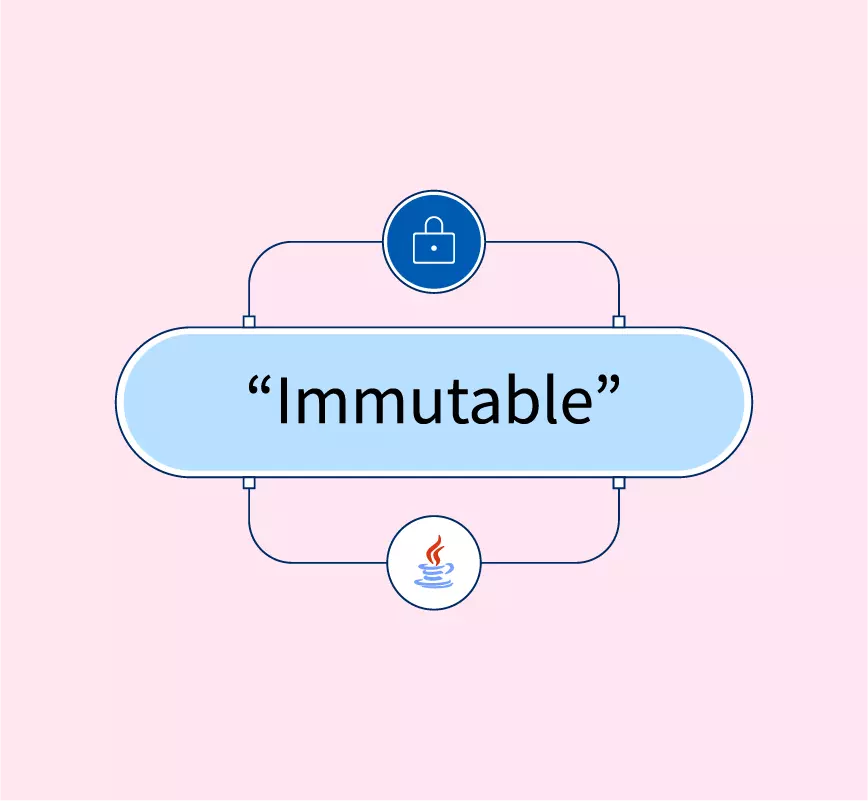Why Are Strings Immutable in Java? Comprehensive Overview for Beginners
Why Are Strings Immutable in Java? Comprehensive Overview for Beginners
Blog Article
Immutable Strings: A Secret Part in Ensuring Information Consistency and Reliability
In the world of information management, the significance of immutable strings can not be overemphasized. These unvarying sequences of personalities play a critical duty in promoting the stability and precision of details within systems. By preserving a state of immutability, information consistency is guaranteed, fostering a structure of reliability whereupon critical processes depend. The principle of immutable strings transcends plain formality; it is a cornerstone in the complicated internet of information administration. As we check out the advantages, implementation strategies, and functional applications of unalterable strings, a more clear photo arises of their vital nature in guarding the digital landscape.
The Idea of Immutable Strings
Unalterable strings, a basic idea in programs, refer to strings that can not be modified when they are developed. Fundamentally, as soon as a string worth is appointed, any procedure that shows up to customize the string actually develops a brand-new string. This immutability makes sure data consistency and integrity in applications, as it prevents unforeseen adjustments to the original data.
Benefits in Information Consistency

Data uniformity is critical in different aspects of software application development, including database monitoring, multi-threaded settings, and dispersed systems (Why are strings immutable in Java?). Unalterable strings add dramatically to achieving this uniformity by stopping information corruption due to concurrent accessibility. In scenarios where several procedures or strings communicate with the exact same information simultaneously, immutable strings serve as a protect versus race conditions and synchronization issues
In addition, the immutability of strings streamlines debugging and screening processes. With unalterable strings, programmers can rely on that as soon as a string is established, it will continue to be the same, making it easier to trace the resource of errors and guaranteeing that examination situations create regular results. This dependability in data handling eventually causes more steady and robust applications.

Carrying Out Immutable Strings
Making certain the immutability of strings calls for a thoughtful approach to their execution in software application advancement. As soon as a string item is created, one vital technique is to develop string courses in a means that avoids alterations. By making strings unalterable, developers can improve information consistency and dependability in their applications.
To execute immutable strings efficiently, programmers ought to favor developing new string things as opposed to customizing existing ones. This technique ensures that once a string is assigned a value, it can not be altered. In addition, any type of operation that appears to change the string needs to create a brand-new string with the desired changes rather than changing the initial.
Moreover, using unalterable strings can streamline concurrency administration in multi-threaded atmospheres. Given that immutable strings can not be changed after creation, they can be safely shared amongst multiple strings without the risk of data corruption.
Role in Dependability Guarantee
In software development, the utilization of immutable strings plays a critical function in ensuring the integrity of data procedures. Immutable strings, as soon as created, can not be modified, making sure that the data they stand for stays consistent throughout the application's execution. This immutability building offers a degree of guarantee that the information being refined why not look here will certainly not be unintentionally transformed, causing unanticipated end results or mistakes in the system.
By including immutable strings right into software application design, designers can enhance the reliability of their applications by decreasing the risks connected with mutable data - Why are strings immutable in Java?. Immutable strings aid in protecting against information corruption or unintentional alterations, which can be especially essential when taking care of sensitive information or when data integrity is critical
In addition, the use of unalterable strings simplifies simultaneous processing, as multiple threads can securely accessibility and share string information without the threat of one string altering the material while another reads it. This facet contributes substantially to the overall reliability of the software program system, making sure consistent and predictable habits in information handling operations.
Applications and System Combination
The smooth integration of unalterable strings right into different applications and systems is essential for making sure robust information consistency and integrity across varied technical environments - Why are strings immutable in Java?. Unalterable strings play an essential role in boosting the honesty of information exchanges and interactions within complex software application environments. By integrating immutable strings right into applications, programmers can reduce the dangers connected with information tampering, unapproved adjustments, and inadvertent modifications, thus strengthening the overall safety and security stance of the system
In the context of system combination, immutable strings serve as a foundational element for establishing safe and secure communication networks and promoting smooth data transfers between various parts. Their unalterable nature ensures that information transferred in between systems remains unchanged and verifiable, minimizing the probability of variances or errors that might jeopardize the stability of the whole system. Additionally, unalterable strings can enhance interoperability between disparate systems by supplying a standard format for data representation, making it possible for a lot more reliable information processing and exchange procedures throughout interconnected platforms. By adopting unalterable strings in applications and system integration processes, organizations can fortify more information their data infrastructure and support the integrity and consistency of their info properties.
Verdict
In conclusion, immutable strings play a crucial role in keeping information read here uniformity and integrity in numerous applications and system integrations. By ensuring that strings can not be altered as soon as produced, the honesty of data is preserved, reducing the danger of mistakes and incongruities. Carrying out unalterable strings can substantially improve the dependability of systems, ultimately bring about more accurate and reputable data handling.

Report this page